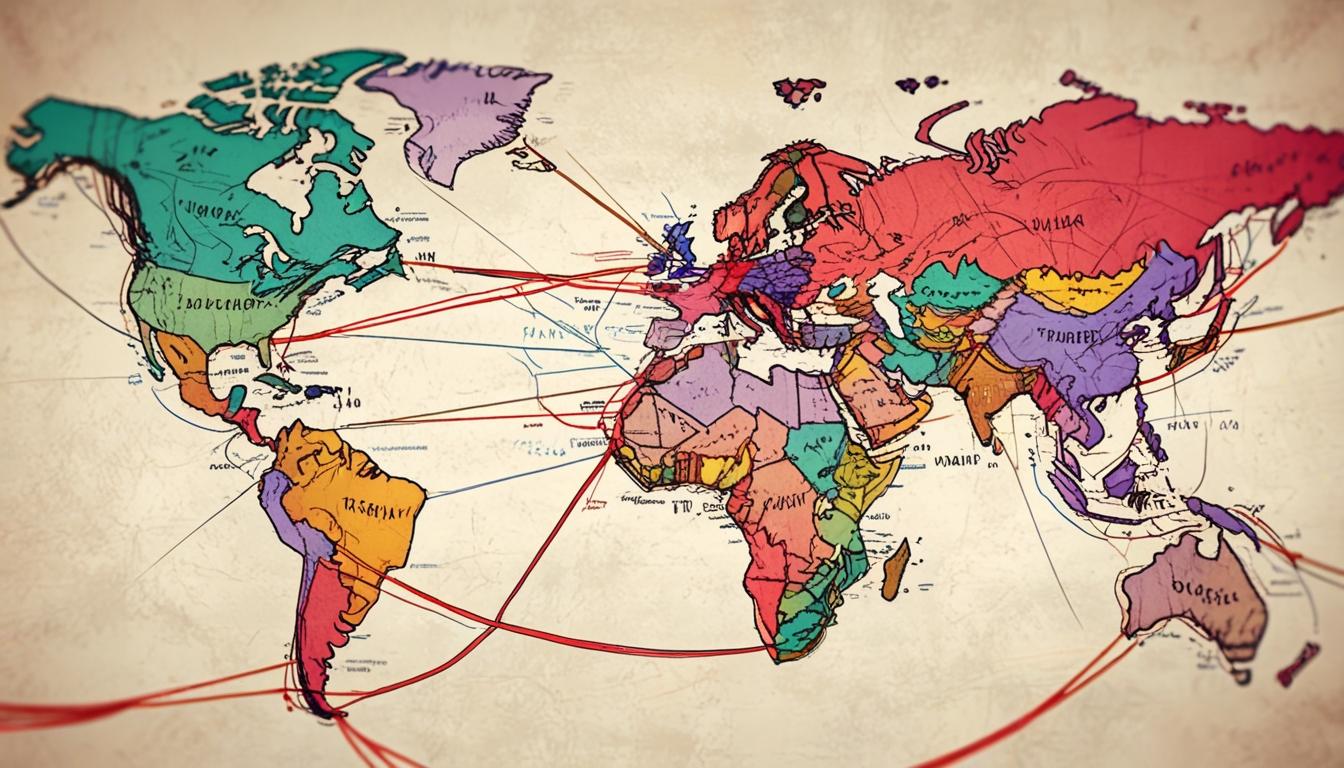The current international landscape is increasingly fraught with tension, echoed by the erratic governance methods associated with President Trump. As globalisation faces considerable threats from a resurgence of nationalism and populism, voices within the business community are compelled to respond decisively. The intertwining of global markets, geopolitical relations, and domestic policies has left many businesses in a precarious position, questioning their alliances and strategic choices.
Reflecting on the ideas of JM Keynes, who observed the remarkable ease of accessing global goods in the past, one is left to ponder how sustainable this scenario remains in the present day. In the wake of significant disruptions such as Brexit, the Covid-19 pandemic, and heightened political partisanship, the landscape of global trade and economic collaboration is shifting dramatically. For many, the easy flow of goods and services has given way to trade barriers and a retreat into national self-interest.
Populists thrive on discontent, particularly among those who perceive themselves as victims of a world where globalisation has succeeded more for some than for others. Countries such as China have benefitted significantly, while economies in the West have struggled as manufacturing jobs have dwindled. This sentiment has found a potent ally in Trump’s rhetoric, which often reduces complex international relations to oversimplified and often disparaging terms. His administration’s policies suggest a drive towards greater self-reliance and scepticism of international entanglements, particularly evident in current geopolitical efforts to negotiate détente between Saudi Arabia and Israel—a venture complicated by the ongoing Gaza conflict.
As Trump's trade war continues to unfold, companies are grappling with the ramifications of these policies. The chaotic trade environment, typified by unpredictable tariffs and sectoral exclusions, has created a climate rife with uncertainty. For instance, the imposition of tariffs on essential imports, including significant levies on steel and automobiles, has disrupted global markets and left domestic manufacturers in a tight spot. In particular, small enterprises with less capacity to absorb sudden cost increases are feeling vulnerable, as exemplified by the plight of U.S.-owned factories in China, where exorbitant tariffs have forced many to halt production and lay off workers.
Amidst this turmoil, businesses face a crucial choice. They can either fall into line with the populist rhetoric, increasing their alignment with Trump’s administration, or they may choose to stand as advocates for global engagement and sustainability. The latter path, however, brings its own set of challenges. Advocacy for issues such as climate change, social equity, and corporate citizenship has often clashed with the hostile sentiments prevalent in political discourse today. The dilemma intensifies as companies navigate a landscape of ideological extremes, with the fear of backlash looming large.
To reconcile these conflicting demands, some propose a "third way". Upcoming discussions hosted by Jericho aim to explore this middle ground where businesses can embody social responsibility without risking alienation. The conversation seeks to challenge the binary dichotomy imposed by prevailing political narratives, fostering a more sophisticated dialogue that could enable organisations to operate sustainably in turbulent times.
Yet, the spectre of a culture characterised by obsequiousness hangs heavy over the business landscape, where dissent or questioning of authority is perilous. As Edward Gibbon noted about the decline of the Roman Empire, the environment fosters a culture of servility; the louder voices of those in power, such as Trump, often drown out the more measured tones of reason and insight. As companies weigh their strategies, they must acknowledge that passive acceptance of disruptive politics rarely leads to constructive outcomes.
Ironically, despite aiming to ‘Make America Great Again’, Trump’s policies may strip the American business ethos of its dynamism and adaptability. Like Keynes lounging in the comfort of his London home, businesses cannot afford to remain passive while the global order is rewired around them. Instead, it becomes essential for businesses to actively engage with the complexities of today’s economy, forging paths that support both their interests and the broader societal good.
In this climate of uncertainty, businesses cannot simply retreat into self-serving narratives. They must articulate a robust vision for their role in an interconnected world, embracing the benefits of globalisation while addressing critiques and adapting to shifting realities. Only by doing so can they hope to navigate the complexities that define the modern era.
Reference Map
- Paragraph 1: 1, 3
- Paragraph 2: 1
- Paragraph 3: 1, 2
- Paragraph 4: 3, 4, 7
- Paragraph 5: 1, 4
- Paragraph 6: 1, 4, 6
- Paragraph 7: 1, 5
- Paragraph 8: 1, 3
- Paragraph 9: 1, 6
- Paragraph 10: 1, 3, 6
Source: Noah Wire Services
